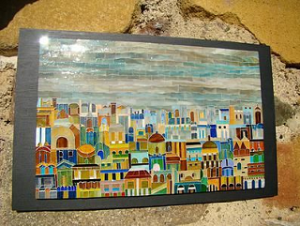
Imaginary, Utopia and ideology
Although we have done a translation of ours, we preserve the original text, because the concepts here, such as good life, have no relation to bon vivant and the original is important.
because the concepts here, such as good life, have no relation to bon vivant and the original is important.
Imaginary has already had in mind the same confusion that exists today for the virtual, Ricoeur’s clarification in his work undoes this confusion: “the arbitrary evocation of things absent, but existing elsewhere” (Ricoeur, 1986, p. Such as “portraits, pictures, drawings, diagrams, etc. … whose function is to play the role of the things they represent “(Idem).
But he does not fail to realize that there is the use of the image in the unreal sense, in this sense imaginary and imaginary has practical functions, it designates “fictions that do not evoke things absent, but things that do not exist … applies to the field of illusions” (idem ) That leads one who gives himself to them to believe that the aim is a real object.
It makes here an important relation to the idealistic concepts of subject and object: “fictions that do not evoke absent things, but things that do not exist … application to the field of illusions” (idem) that leads to the one who gives himself to believe that the object Is real, this is ideology in the ideal sense, even if they are not the object of liberal concepts, they are still Hegelian.
This kind of consciousness leads “on the side of the subject, to the axis of the fascinated consciousness and the critical consciousness (idem), and here Ricoeur supposes that the imaginary, the symbolic, the mythical and the fictional can have a truth value, Allow us to describe the human condition, making us perceive new existential possibilities, and this seems very current.
What Ricoeur proposes is to discern the positive functions of both ideology and utopia: it is “an interpretation of real life (being) the expression of all the potentialities of a group that are repressed by the existing order” (Ricoeur, 1986, p. 387-388).
Ricoeur, however, makes an essential difference between the two, the theme of power, and insofar as it “wants to be an accomplished eschatology,” must have the function, this is the problem, of “keeping open the field of the possible” (1986 , Pp. 389-390), and here ethics enters.
He also writes a small ethic in discerning action a new culture of peace “and its challenge is the globalization of nonviolence”, “the external face of the virtue of prudence” (1986: 402).
Herein lies the function of the ethics of utopia, since it can bring about a “living together”, which the author makes clear by creating a summarized rule of thumb as “living the good life, with and for others, in just institutions” ( 1990, pp. 199-236).
Of course this refers to the concept of good that is the good life, not adopt here the jocular sense of bon vivant is not this, but the good of classical philosophy, thus the city of the future and not the government of the future, because there live Citizens who make their micropolitics, the one that goes towards the ideal city for the “education of all for freedom, for discussion” (1986, 400), although of course this requires an ethical state, but it is not he Of opinions.
The ethical state defined by Ricoeur defines it as “its virtue is prudence
RICOEUR, P. Du texte à l’action. Paris Seuil, 1986.
RICOEUR, P. Soi-même comme un autre. Paris: Seuil, 1990.









